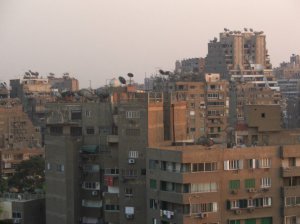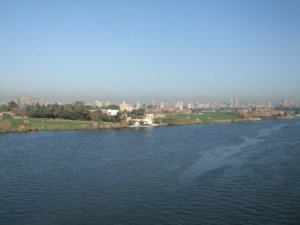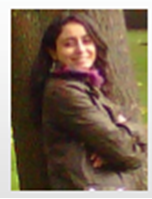 Cities are like us: They have moods. This is how I’ve always experienced Cairo. I have had the privilege to spend the majority of my childhood years in Cairo, with many, many days spent with my Grandmother, who back then, lived just three kilometres away from Tahrir Square.
Cities are like us: They have moods. This is how I’ve always experienced Cairo. I have had the privilege to spend the majority of my childhood years in Cairo, with many, many days spent with my Grandmother, who back then, lived just three kilometres away from Tahrir Square.
When I spent the nights over with Mama Laila, I followed her routine. Every morning, we got up to do a little bit of exercise, followed by a very indulging Chai-Latte making in the kitchen, which we sipped in the veranda. On the stove, Mama Laila boiled water, added about half a spoon of gunpowder black tea. Then, she slowly added fresh milk. “This is the right colour”, said Mama Laila with the teaspoon in her hand. “Slightly dark cream colour. Add the sugar only at the end”.
The distance between the kitchen and the veranda was about 10 meters, but those ten meters marked the mental and emotional separation between the private and the public. From the veranda I could see life happening in the street. Cairo was pumping with life. Honks, school busses parking second rows, passers-by, street vendors, postman wearing his sweaty cap and bending forward with a bulgy duffle bag full of white and brown envelopes, “look, that envelope has the same colour as our tea!”. I always confirmed my milk-tea knowledge to Mama Laila whenever I had the chance. Day after the other, month after the other, this very veranda became my window to city life. From the veranda in my house, I sat there in salience next to Mama Laila and slowly merged into the life in the street.
Everyday, Cairo worked very hard to keep her dwellers, residents, homeless, and hope-seekers alive. She carried all the weight of the asphalt, the concrete, and the much lighter weight of the soil in public parks. She felt the rubber of the wheels too. Some went so fast like cars and busses, others went slowly like bicycles. But I could imagine, for Cairo, nothing felt like the footsteps of all the people wandering in the city.
Cairo heard all the noise, but she only listened to the brief silence every morning when the thin line of sunlight broke the dark skies. It was then that Cairo was able to take a deep breath.
Every day, Cairo experienced a cacophony of aromas: garlic-infused fava beans, the falafel, the rose scented waters in the fridges, and the incense in the Churches and Mosques, and indeed, the dust and the exhaust.
Cairo was alive. The city was pulsating with life. Everything and everyone in it was part of its ecology. 
I did not know that those precious times I spent with my Grandmother would later materialise into an academic career. Everything in the city became an object of interest: the crowds, the walls, the doorways, the parks, the buildings, the squares, the cars, the Nile, the bridges, and well, dustbins!
Today, I study the dynamics of citizen action in urban contexts. I am interested in how the urban form and citizen action interact. I am especially interested in environmental issues and in what urban societies do in order to improve their environments. How do people perceive of concepts like the environment, cleanliness and nature? How do societies construct their understanding of environmental issues, and how do they create moments when they share a common understanding of a problem? How does this impact their choice of action? Are these social and cultural constructions of environmentalism fluid? Do they change or mutate and why? Do forms of citizen action around single issues evolve over time? What does this tell us about the city as an organic space in which politics and policies unfold? 
After all, cities are the constructions of our imaginations. The experience I had with my Grandmother during my childhood cannot be separated from the way I see Cairo today. I can tell, how over the years, Cairo moved through different phases, or perhaps, moods. In the city, each of us experiences a fluid self that changes and can be changed by the mood of the city we live in.
About the author: Hadeer El Shafie is a new member of the DirtPol team and she will be working with us on managing our increasing archive of collected data. Hadeer is of Egyptian heritage and is currently a PhD student in IDS, already having carried out research in rural and urban Egypt.
About the project: DirtPol is an international cultural studies project based at the University of Sussex. For more information please visit the DirtPol website.
Follow DirtPol on Twitter: @ProjectDirtPol


Hello Hadeer! Welcome to the Dirtpol team!!! ‘Good to have you on board. Your post is very interesting and easy to relate to, I enjoyed reading it. Your research interests are not far from the concept of Dirtpol. Hmmmmm……cities have moods, that is something!